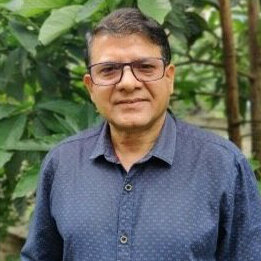Opinion
Election economics
Campaign spending pumps cash into the economy and stimulates short-term growth
Shiv Raj Bhatt
Elections are deeply associated with economics. They furnish a future roadmap for the economy. However, limited literature is available on election economics, and it is almost absent in Nepal’s case. Most empirical studies are confined to the developed countries, and generalising from them and applying these generalisations to Nepal may be misleading. Even then, many interesting points can be drawn after reviewing them with the Nepali socio-economic and political context in mind. Election mania has spread everywhere, from remote villages to metropolitan cities. And analysts are busy speculating about the impact of the election from different aspects—politics, economics, society, gender, religion, geography and caste. Many are even exploring the linkages between election and corruption, mainly arguing that expensive elections have been promoting corruption. Debates are also raging on the impact of the election on development and the economy, most of them arguing that the huge election expenditure ultimately raises consumption (particularly of non-durables) and thus spurs economic growth.
Growing costs
The election has been getting plenty of media coverage, but the ‘economics’ of elections has hardly received a mention. Little space has been devoted to economic issues in the election manifestos of the political parties, and what has been written doesn’t make much sense either. The words are confusing. Long and vague sentences can easily spin the head of common readers. It seems that the manifestoes have been prepared assuming that only a few, if any, will read them. People expect a more unbiased anatomy of the election from experts so that they can make an informed choice on Election Day.
Elections in Nepal are getting costlier. A recent research by the Election Observation Committee (EOC) shows that Rs69.42 billion was spent during the recent local elections. This is more than the price tag for the largest hydropower project in the country, Upper Tamakoshi. More money is expected to be poured into the coming election with a roster of heavyweight candidates, including six former prime ministers and hundreds of ministers in the fray. Add to the list good names (entrepreneurs) and bad names (lawbreakers and thugs). The upcoming election may well cost more than Rs100 billion.
The billions being spent on the election may bring long-term benefits as it will establish people’s sovereignty and institutionalise the new constitution. Though some sections of society are still unhappy with the document and want to amend it, implementation will definitely mean moving a step closer to political stability after what has been a long political transition. A smooth transition is required for faster economic development.
Campaign spending may also create an opportunistic political business cycle with short-term economic expansion. Higher demand, mostly for non-durable consumer goods, may help the economy. It may also inflate prices of necessities like food and vegetables, and this is already being seen in the market. The election money that gets funnelled into the market can expand economic activities by creating part time jobs and other income opportunities, and thus spur economic growth. However, such economic expansion may be short-lived, creating economic bubbles without longer term benefits to the economy. Real economic benefits, in terms of increased production, national income, business environment and investor confidence that are needed for economic growth, largely depend on the political behaviour of the major political parties and the policies they adopt after forming a new government.
In Nepal’s case, it seems that political uncertainty associated with the election is dragging down the real economic indicators. Dipping share prices and a drop in the value of the Nepali rupee are two examples. All major political parties are begging for votes, claiming that they can bring political stability. However, none of them has been able to convince the people and potential investors how they plan to achieve rapid development and prosperity.
Demanding results
Policy stability is equally important. Political stability cannot automatically guarantee policy stability. Political parties have to be clear that they will not distort the market economy. Some of them still seem to be confused about the role of the market and the private sector in achieving economic development. Even though poverty has dropped to 20 percent and the middle class now represents more than 50 percent of the population, political parties continue to talk about ideologies developed many decades ago. They want you to continue with the dream that was conceived during the time of hardship and poverty, a dream that was applicable when people had limited needs and expected little from them. But today, Nepal and the Nepalis have changed. They are well aware about the changes around the world. People are practical and pragmatic now. They want results, visible results within their own lifetimes.
Young Nepalis have dreams that are drastically different from those of their grandparents. Half of the voters belong to the age group of 18-40 years. They have the power to elect or reject a candidate or party. In contrast, the leadership in all major political parties is dominated by old people. More than half of the candidates are over 60, a group that is usually described as being as economically inactive. This is clearly reflected in the economy. Their vision, therefore, does not truly represent the current context of Nepal—new Nepal, but old guards. Eternal arguments are still being used to win the hearts of the people, despite the fact that the youth cannot be attracted by such tactics anymore.
What is needed here is a decent job for every youth, quality infrastructure and social services for all. Job creation and provision of much needed social services largely depend on economic growth, which itself depends on creative minds and entrepreneurship. The role of the market and the private sector in the economy is vital.
However, political parties are blaming each other for all the ills that are present in the country, ignoring the achievements in the past three decades. Nepal’s liberal economic policies are noteworthy and praiseworthy. Despite a long political conflict and unrest, the country achieved much in the last three decades. Poverty declined drastically, physical infrastructure improved, and education and health related indicators have changed significantly and positively. Dependence on foreign aid has shrunk from 70 percent in the 1980s to 10 percent today. Moreover, the people are not voiceless like they were during the past regimes.
The impacts of liberal economic policies are clearly visible in many sectors of the economy like tourism, telecommunication, financial services, hydroelectricity, pharmaceuticals, leather and so forth. There were many missed opportunities and Nepal could have done more if there had been no political unrest, but a lot was achieved nevertheless. Therefore, instead of blaming each other, political parties should list the achievements of the past decades and proudly proclaim their role in making them happen. They should promise to continue the policies and further reform the economy. Economic reform and policy stability are a must for economic development.
They should also commit themselves to creating a transparent and corruption-free society.
Political parties should also address uncertainty and market imperfection, outline a clear vision for investment, including foreign investment and trade regime, and ensure policy stability for better macroeconomic performance. Political leaders should cautiously present their views on foreign policy, particularly relations with the two giant neighbours. All this affects economics and ultimately the common people. Hope this election brings more efficiency in the political parties as they need to show results to the public to get votes, now and in the future.
Bhatt is a development economist




 9.89°C Kathmandu
9.89°C Kathmandu










